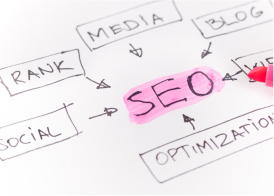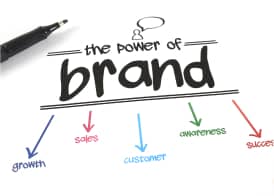A 30 minute meeting to understand your companies current marketing performance.

AI Search & SEO Consulting: Rank in Google, Get Cited by ChatGPT & Perplexity
I’m Noah Lopata,
an SEO and AI search consultant
I help brands improve their visibility across search engines and AI platforms like ChatGPT, Perplexity, and Gemini, so they get found, cited, and chosen.
Whether you want direct consulting or a full agency-led execution, I help you rank in Google, get cited by AI tools, and turn that visibility into leads that convert.
I work with local and global businesses, agencies, and in-house teams that need clear strategy, clean execution, and content that drives trust, not noise. If your site isn’t getting found where it matters, I’ll help fix that.
Most projects involve fixing technical SEO, building an entity-based structure, improving AI readability, and tightening UX for a stronger conversion flow.
For agencies and internal teams, I provide:
No bloated presentations. No buzzwords. Just sharp, strategic SEO that helps your business win in both search and AI.
What I Do to Help You Get Found, By Both Search and AI
I help businesses build content that ranks in Google, drives conversions, and gets cited by AI engines like ChatGPT, Claude, Gemini, and Perplexity. My approach combines technical SEO, entity strategy, and conversion-first thinking, so your content performs where decisions are made.

What our Customers Say

Noah was great to work with.
I have been relying on word of mouth for my business for years and did not have a website. He helped me put together my website as well as helped me get my Google local listing reinstated after a suspension.
Now we are starting to do an SEO campaign to bring in some more clients! I’m excited to expand my local Denver business in to some other cities and grow my business!

Noah was incredible helpful and generous with his time and expertise. He gave some very good advice and I feel confident with our SEO strategy. Thanks!

To Noah and his Team I cannot thank enough! The knowledge and experience he brings to the table is unmatched. For once I felt like I was really being explained marketing rather than trying to be sold. Noah broke down everything for us to understand and obtain every bit of it. He and his team have done nothing but good for my business and I cannot recommend enough! They are great, you won’t be disappointed!

Before I met you guys, any other time I have had major work done to my website, its usually about a week of stress and uncertainty followed by another few days of fixes before I can relax again. I just wanted to let you know how refreshing it is to have actual pros on the job. You made it happen fast and smoothly all under short notice and I woke up in a great mood because of it, so I just wanted to say thank you and let you know that the service is very much appreciated.

We recently used Noah and his team of SEO’s to work on our E-commerce site. Within a few months we were really gaining traction and had great success. We had a steady increase in traffic and sales were on the surge. By the 6th month we were approached by our competitor and were offered a buyout offer, cha ching! We highly recommend Noah and his team for local as well as national SEO campaigns, they clearly know onsite and offsite SEO and you will not be disappointed.

Noah is so knowledgeable, helpful, and fun and easy to work with. He gave me tons of suggestions to get more traffic to my website. A lot of them I can implement myself, and the ones I can’t I know he has a team to help out. I am looking forward to working with him more in the future!
AI Search Optimization (GEO, AIO, AEO)
Most content isn’t ready for AI. I will help fix that. AI platforms don’t just crawl, they retrieve, rank, and recommend based on structured patterns and entities. I optimize your site so that large language models (LLMs) can find, trust, and use your content in direct answers.
You’ll get:
GEO (Generative Engine Optimization)
llms.txt deployment and configuration
Schema markup for AI-friendly content
Entity-based content mapping and structure
Content Freshness Signals
Authoritative Citations and External Links
Optimization for Retrieval-Augmented Generation (RAG)
If your goal is to be cited in AI tools, this is how you get there.

Technical SEO Audits & Strategy
If Google can’t crawl or interpret your site clearly, everything else falls apart. I run deep technical audits that uncover crawl issues, structure gaps, and semantic misalignment. Then I build a prioritized roadmap to fix it, so your content is clean, fast, and ready to rank.
Audit deliverables often include:
These audits are designed to show exactly what’s broken and how to fix it.
Conversion Rate Optimization (CRO)
Traffic is only useful if it converts. I review your copy, structure, and UX flow to improve how users interact with your site. Using a mix of UX writing and conversion-focused layout, I help you turn visits into demo requests, phone calls, or purchases.
Here’s what I typically review:
Small changes here often lead to big results.
Local SEO & Entity Building
If you serve a local area, your visibility depends on how well you communicate who you are, what you do, and where you work. I help you show up in Google Maps, “near me” searches, and AI answers by aligning your content and local business data with what both users and engines expect.
Local SEO done right builds trust with both your audience and AI engines.
Why AI Search Is Changing the Game
Search is no longer just stuffing keywords and building a list of links. Today’s AI-powered engines, like ChatGPT, Gemini, Perplexity, and Claude, don’t just index your content. They summarize it, rank it, and recommend it directly to users. Your business can either show up in those answers or be completely invisible.

Trusted entities
Are you recognized as an authority in your space?

Structured, retrievable content
Can your site be parsed, not just read?

Semantic clarity
Do your headers, schema, and structure align?

Local and brand signals
Is it obvious what you do and where?
If your content isn’t built for AI retrieval, it won’t be surfaced, no matter how “optimized” it looks.
The businesses that win in this next phase of search will be the ones that adapt early. I’ll help make sure you’re one of them.
Who I Work With to
Drive Real Visibility and Results
I work with people who care about being found, by both search engines and the tools users are actually using today. Whether you’re an agency, a local business, or part of a content team, I help you get clear, get structured, and get cited where it counts.
Local businesses
Want to rank higher in Google Maps, show up in “near me” searches, and get cited in ChatGPT? I’ll help you make it happen with clean structure and location-based signals.
Agencies
Need white-label SEO, technical audits, or help productizing GEO/AIO services? I act as a senior partner who helps you deliver better, faster.
Service businesses
If your leads come from trust, like law firms, consultants, and medical providers, I help make sure your landing pages convert visitors into calls.
Content teams
Trying to improve AI visibility or citation rate in ChatGPT, Claude, Gemini, and Perplexity? I help you align your content structure with how LLMs retrieve and rank info.
In-house marketers
Need clarity on what to fix, what to prioritize, or how to explain SEO to your CMO? I bring technical strategy and simple, clear roadmaps.
Why Clients Work With Me Instead of a Traditional SEO Agency
There are a lot of SEOs out there. Here’s what makes my approach different:
15+ years in technical and content SEO
I’ve seen trends come and go. I focus on what works, because I’ve tested it, built it, ranked it, and converted with it.
Deep focus on entity-based and AI-first content strategy
Deep focus on entity-based and AI-first content strategy. I build for how search engines index and how AI retrieves and synthesizes, not just how bots crawl.
Hands-on consulting without the fluff
I work directly with clients and agency teams. No bloated decks or vague audits.
Consultant-first, not another agency
You get high-level support and clear implementation help, without agency overhead.
Let’s Make Your Content
the One AI Engines Recommend
If you’re still guessing how your content shows up in ChatGPT, Gemini, or Google, it’s time to stop guessing.
You don’t need more pages. You need better structure, sharper positioning, and a clear strategy that works across both traditional search and AI tools.
I offer both one-time audits and ongoing consulting. Start with a free visibility review or schedule a discovery call, I’ll walk you through where your site stands now, and what we can do to improve it.
Latest Blog

GEO vs. SEO: Understanding the Difference Between Search and AI Optimization in 2025
Search is changing. AI tools like ChatGPT and Perplexity are giving users direct answers, often without a single click. If your content isn’t showing up…
AI Content Optimization: How to Get Your Website Cited by ChatGPT, Perplexity & Google SGE
AI assistants are changing how people search. Tools like Perplexity, ChatGPT, and Google SGE are no longer just novelty tools; they’re how millions get quick…








